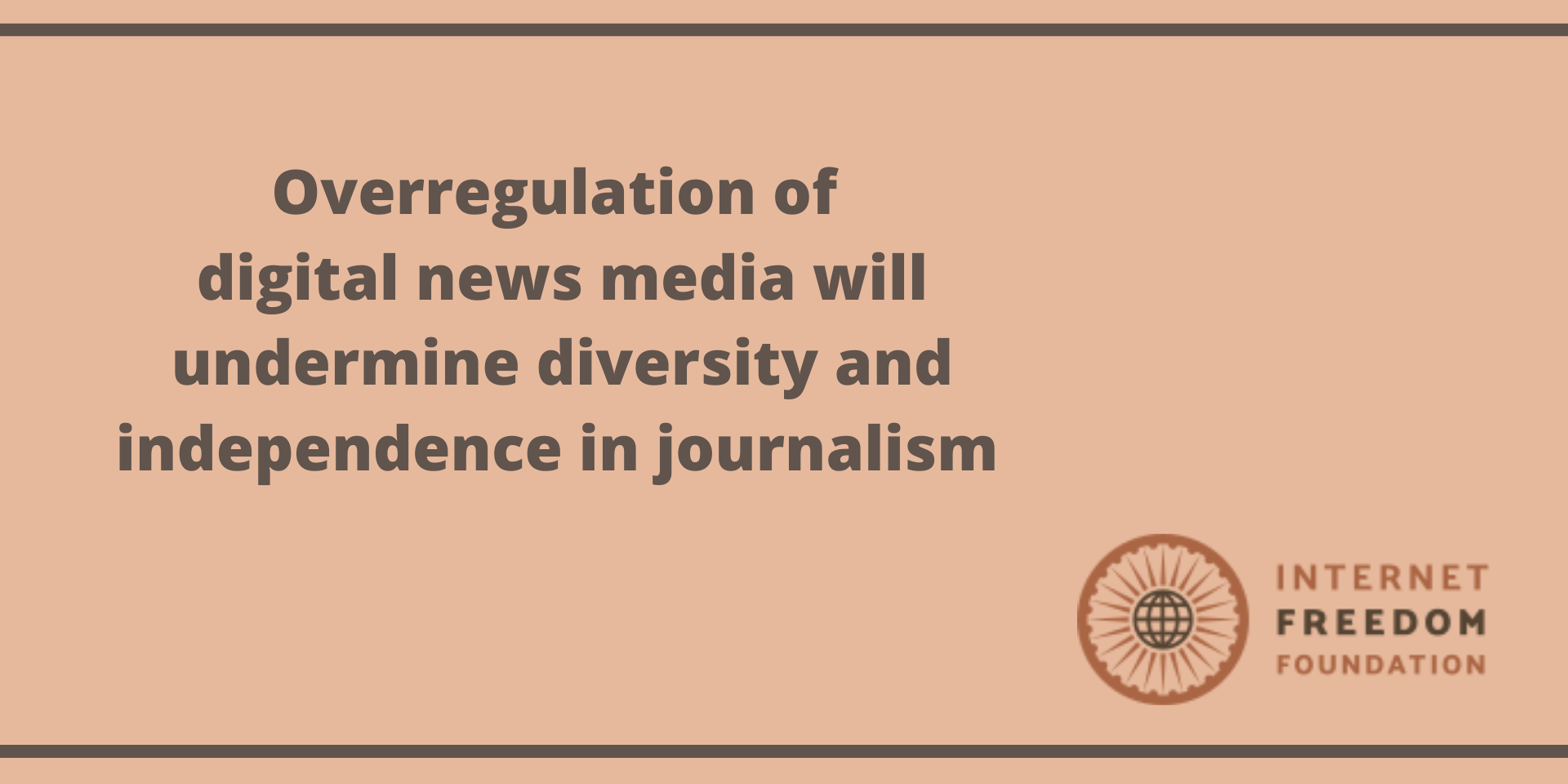
Tl;dr
IFF has provided its comments on the Registration of Press and Periodicals Bill, 2019 ('RPP Bill') which seeks to replace the Press and Registration of Books Act, 1867 ('PRB Act'). In its current form, the RPP Bill is plagued by definitional confusion and lack of a clearly stated purpose. The RPP Bill neither contains a clear definition of “news on digital media” nor does it indicate the objectives sought to be achieved by identifying and regulating digital news media. Digital news media is still in nascent stages of development in India and it must not be brought within the ambit of the RPP Bill to merely achieve regulatory parity with print media. We urge the Ministry of Information and Broadcasting to start from a clean slate by publishing a whitepaper and conducting public consultation before drafting any regulatory legislation.
Definitional Confusion
The government has invited suggestions on the Registration of Press and Periodicals Bill, 2019 (‘RPP Bill’) which seeks to replace the Press and Registration of Books Act, 1867 (‘PRB Act’). According to the notice on the Ministry of Information and Broadcasting’s website, one of the main features of the RPP Bill is that it creates “a simple system of registration of e-papers.” However, the Bill does not contain a clear definition of “e-papers.”
Section 2(k) of the RPP Bill defines “news on digital media” as “news in digitized format that can be transmitted over the internet, computer or mobile networks and includes text, audio, video and graphics.” This definition is overbroad, and it includes posts made by individuals on social media platforms and blogs within its ambit. Including such posts within the ambit of the RPP Bill and imposing a registration requirement on social media users and bloggers is excessive, and it would constitute an arbitrary, unnecessary and disproportionate encroachment on freedom of speech and expression guaranteed by Article 19(1)(a) of the Constitution.
Further, in its current form, the RPP Bill fails to clarify whether “news on digital media” is limited to news organizations which publish news in an electronic format in addition to printed periodicals or if it extends to news organizations which solely publish news in an electronic format such as standalone news websites.
The reasons for including news published in an electronic format within the ambit of the RPP Bill must be clearly stated, and the same must not be done to merely achieve regulatory parity with print media. Standalone news websites particularly are at a nascent stage of development in India, and by reducing the amount of capital investment required to publish news, they have democratized the news industry and increased independence and diversity in journalism. Imposing cumbersome obligations on these standalone news websites would increase the cost of compliance and create entry barriers in the news industry.
Gotta Start from Scratch
The stated objective of the PRB Act was preservation of copies of books and periodicals containing news printed in India. While this may have been necessary in 1867 when the PRB Act was originally enacted, the law has outlived its archival utility in the modern digital age with the internet maintaining a record of news and current affairs. Therefore, there is a need to fundamentally re-examine the purpose and scope of the RPP Bill which seeks to replace the PRB Act.
The Ministry should first publish a whitepaper that identifies existing problems in the news industry and suggests suitable solutions to them. The whitepaper should be made available to the public and comments should be sought from stakeholders about the proposed solutions. Adopting such a process would ensure that the resulting legislation strikes an appropriate balance between the objectives sought to be achieved through regulation of the news and the press’s freedom of speech and expression and the public’s right to receive information.
Important Documents
- IFF’s Comments on the Registration of Press and Periodicals Bill, 2019 (link)
- Registration of Press and Periodicals Bill, 2019 (link)
